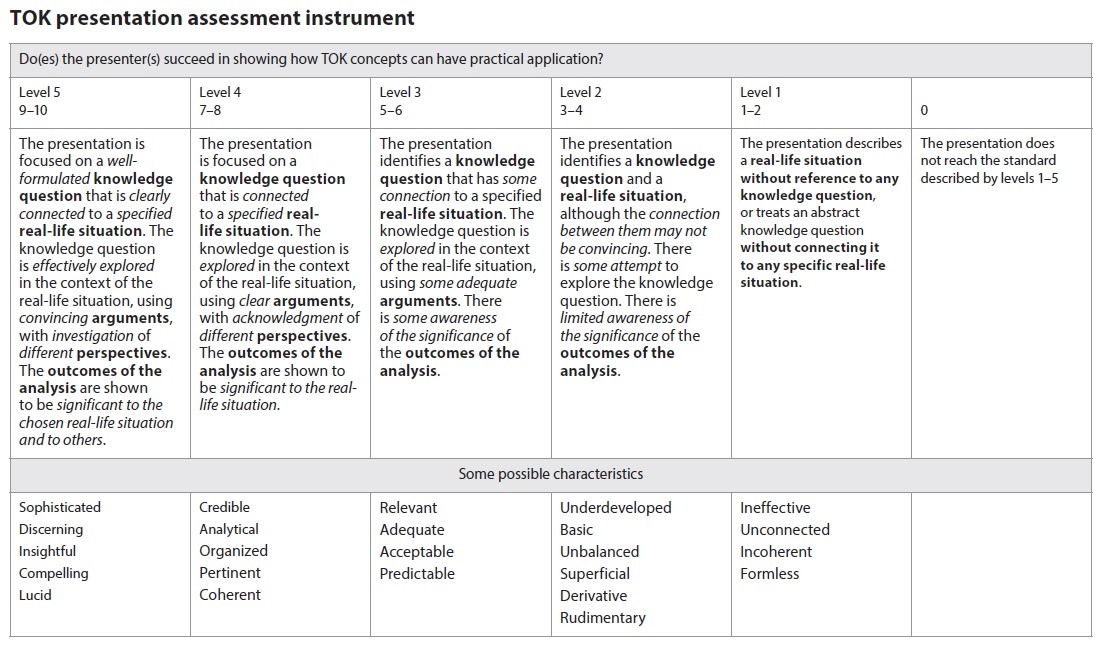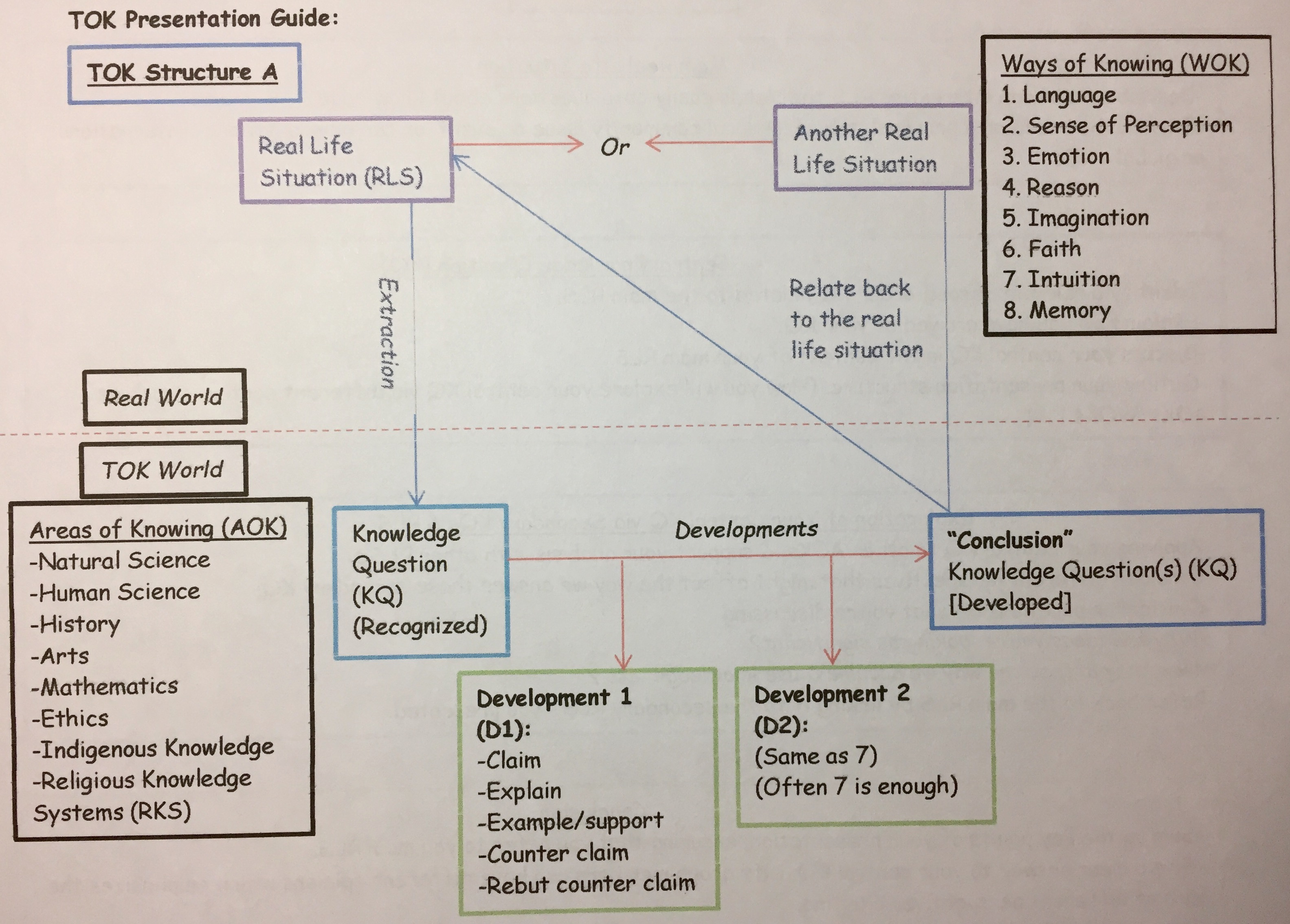Overview
The first thing you need to know is that the presentation is 1/3rd of your final TOK grade. If you mess it up, don’t worry, your essay grade will be more important.
The TOK presentation is meant to test your understanding of TOK concepts in relation to a real-life situation. The real-life scenario can be based on a situation in your local community or an issue of broader international scope. From this real-life scenario, you need to develop a knowledge question. This knowledge question will the basis of your presentation as you attempt to develop different perspectives to which to answer the question.
The presentation can be done individually or in a group of up to three people. Approximately 10 minutes per presenter should be allowed, up to a maximum of approximately 30 minutes per group.
Grading

A = 8-10
B = 6-7
C = 4-5 (Retake available but has to be a new topic)
Presentation Structure (Complex)

Presentation Structure (Simple)
Start presentation off with a Real-Life Situation (RLS)
Lebron passing MJ's all-time scoring record this season in the NBA rekindled a long-time debate of the greatest of all time in basketball history (some statement is being made in this discussion about a fact — who is the greatest of all time)
Then introduce the open-ended knowledge question (How, why, to what extent) and link it to the RLS
How does emotion influence personal knowledge production?
Develop Claims and Elaborate
How you feel about a certain thing forms your opinion.
Confirmation bias (eyeglasses, people who have racist opinions)
Selection bias
Develop Counterclaim and Elaborate
Use of logic (eg. forming knowledge about one's diet and finance choices)
Memory (eg. Memory used to form knowledge about one's knowledge about himself or herself)
Lead into sub knowledge questions to further develop the
original KQ
To what extent is emotion useful in the production of personal knowledge?
Develop Claims and Elaborate
Emotion is highly useful in the pursuit and justification process of forming personal knowledge that informs individuals' identities and everyday decisions.
Emotion leads to motivation to pursue certain curiosities or produce knowledge in different situations
Emotion helps justify personal knowledge because it facilitates how individual values and interprets/impute meaning in different situations
People's biases or personal interests guide who is the greatest of all-time debate
Imagine growing up with Micheal Jordan as a role model for a young African-American student who comes from a single mother background and low socioeconomic upbringing
There is an emotional investment in the production of knowledge that Micheal Jordan is the greatest of all time
Generally, whenever an individual makes a decision that is largely subjective in nature it is often to do with personal relationship matters and aesthetic matters
Develop Counterclaim and Elaborate
Whilst emotion helps begin knowledge pursuit in general, it creates a bias that often halts or jeopardises the production of knowledge by adversely affecting the validity or justification for a belief
It can also harm the methodology of determining the truth value of a belief or producing justification
In the first place, Greatest is a difficult concept to reach a consensus upon
There is nothing that can be quantified or universally settled about a superlative like greatest
Make references to Arts; human sciences; history; religious knowledge systems; ethics etc.
Conclusion
Concisely summaries the conclusions to the CKQ and SKQ
Apply the conclusions to main RLS and other significant RLS explored
Planning Form
The planning Form (max 500 words) is very important.
Official IB Planning Form
View count: 2602